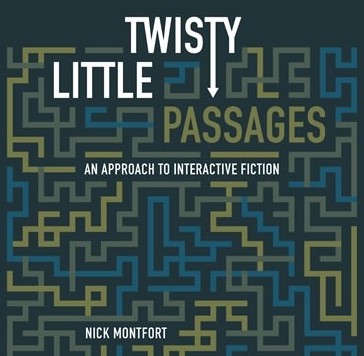Review: Twisty Little Passages

I grew up on choose-your-own adventures and Infocom text adventures. They’re in my blood. So I’m a little predisposed to liking things that celebrate them. This is such a book. It’s a pleasantly well-written history of the medium, along the way picking out specific examples of interactive fiction to highlight certain technological advances, cultural relevancies, or artistic developments. From a historical standpoint it leans heavily on prior work by Espen Aerseth, but this by no means devalues the work.
Montfort’s initial argument is that interactive fiction shares much in common with the traditional riddle, and as such we can bring in traditional academic research on riddles to legitimize ludological studies:
The riddle, venerable ancestor of interactive fiction that it is, also goes a long way toward explaining how the literary and puzzling aspects of the form are hardly inherently antagonistic, but rather must work together for the effect of certain IF works to be achieved (Montfort, 63).
This book was inspiring to me on several levels. Firstly, in the academic rigor it displays in an emerging field of study, and the hopes I have for the same. Secondly, it made me desperately want to play those games again. From a purely practical standpoint, the incredibly well-researched bibliography is worth the admission alone.